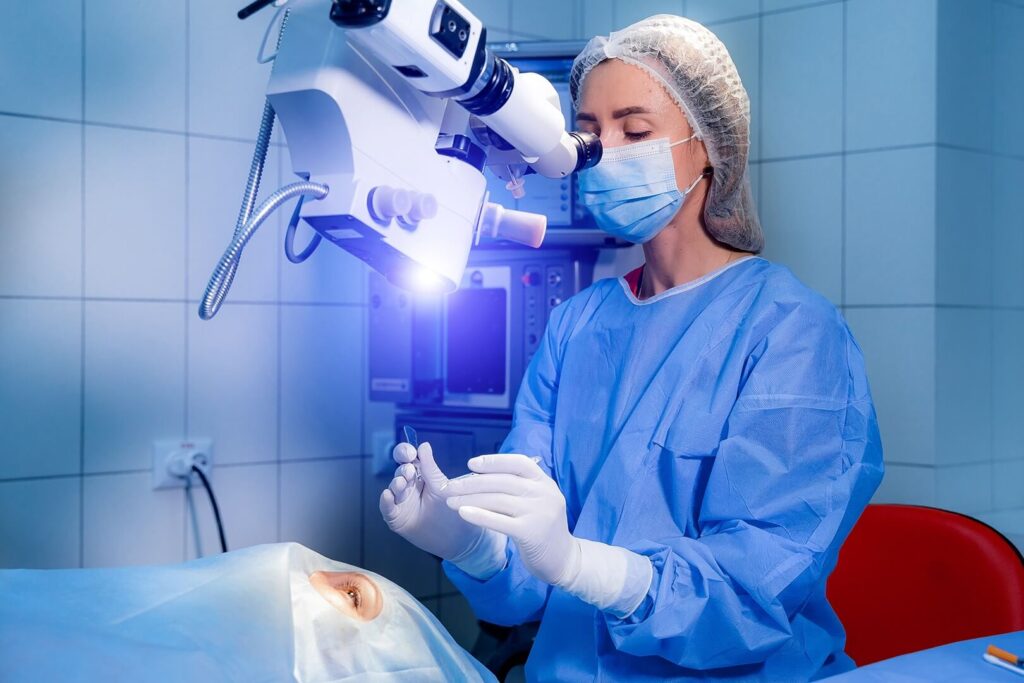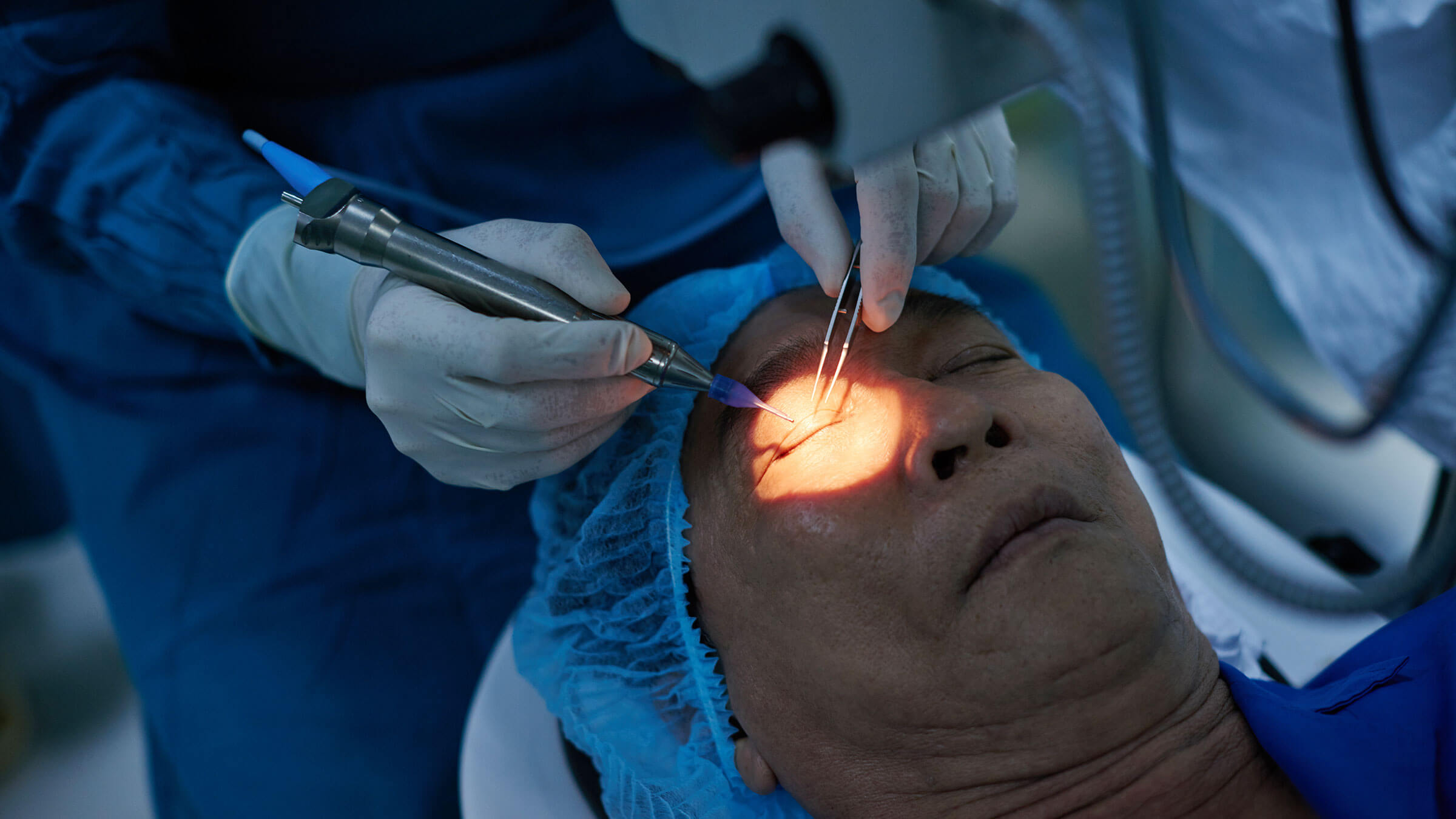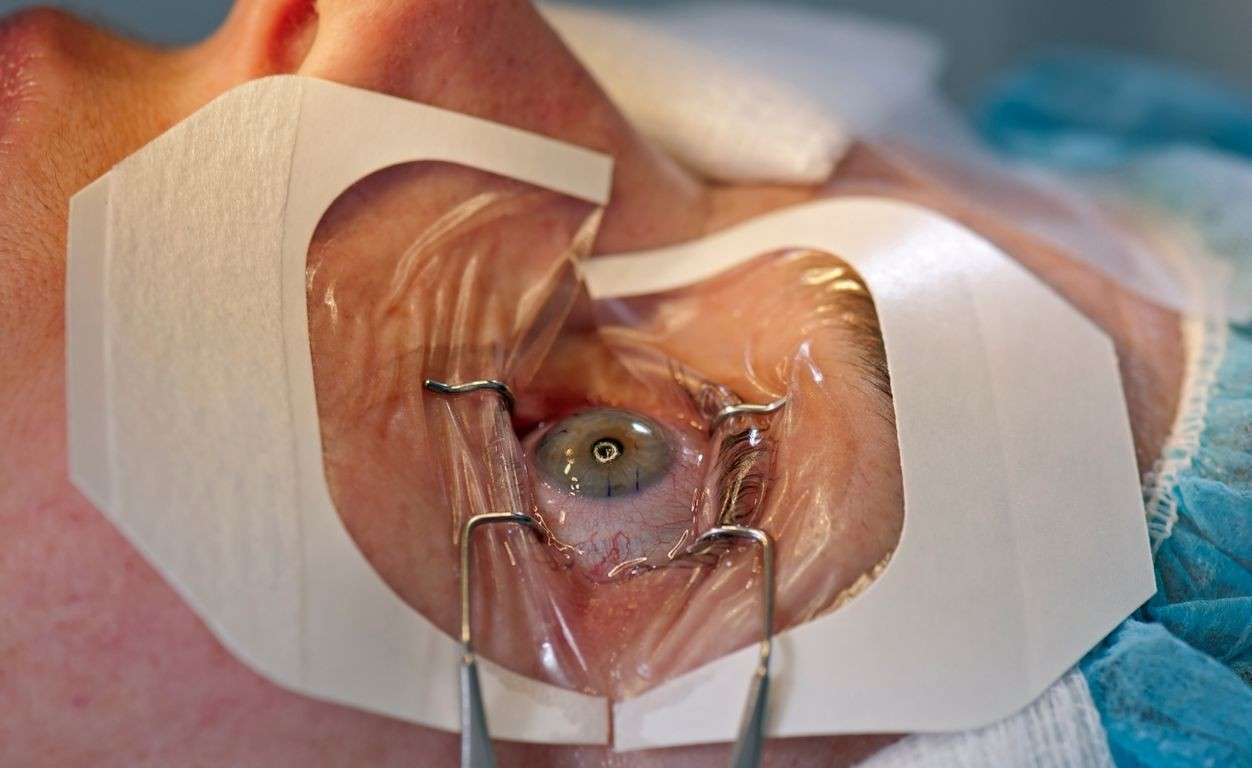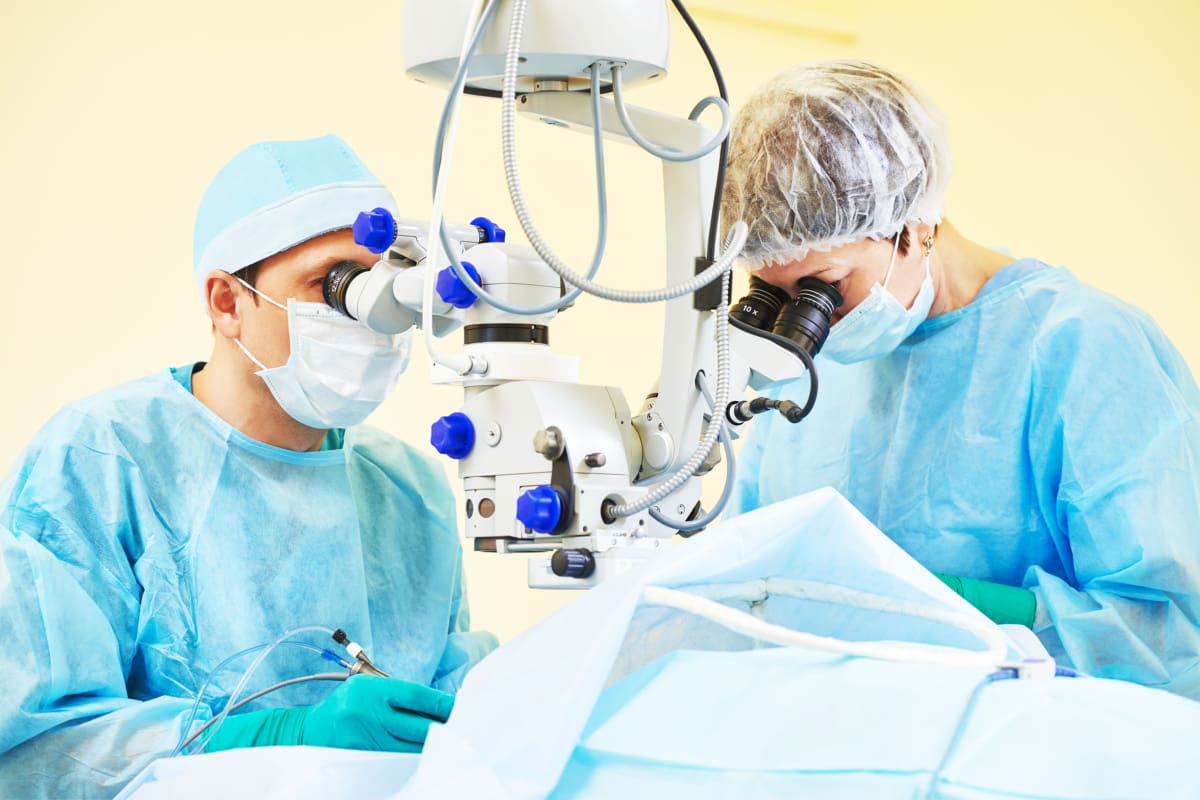The majority of individuals recover and resume regular activities within 24 hours after laser eye surgery, and the majority of patients feel an immediate improvement in their eyesight. Because your cornea is a fast-healing tissue, the estimated recovery period after laser eye surgery is quite brief. Your eyes will begin to mend immediately after the treatment is done and the corneal flap is restored.
Immediately after surgery, you should see the outcomes of your laser eye surgery. For a brief period after eye surgery, you may suffer blurriness or changes in your vision, but your vision will improve significantly and finally stabilize, providing you with optimal vision at all times.
You will be given three kinds of eye drops to use at home during your visit to the OCL clinic: antibacterial drops, lubricating drops, and steroid drops. Additionally, you will get clear eye shields to wear at night the first night after laser eye surgery. We will provide you with detailed instructions on how to utilize them, as well as written information for your records. It is critical to follow all directions provided to you to assist your eyes in recovering as rapidly as possible.
Recovery after laser eye surgery: Frequently Asked Questions
Is it necessary for me to take time off work after laser eye surgery?
You will need to take the day of your operation off work, and we often suggest that you take some time off after your treatment; however, the amount of time may vary from person to person. Your OCL surgeon will examine your recovery rate to provide you with a more precise and personalized time frame, but as a general reference, we recommend allowing at least 24-48 hours off work; however, some patients need up to a week off to acclimate to their new vision. Additional information is available here.
Can I watch television after laser eye surgery?
Because watching television puts pressure on the eyes, it’s advised to avoid it for the first 24 hours after LASIK. If you’re unable to refrain, here are some recommendations for viewing television following laser eye surgery.
What may I anticipate after laser eye surgery?
According to research evaluating the outcomes of laser eye surgery conducted worldwide, the average standard vision acquired by 95% of patients is about 20/40, with an average of 85% of patients reaching 20/20 or better post-surgery.
When it comes to healthy eyesight, everyone thinks of 20/20 vision as the industry standard for visual acuity. Having 20/20 vision indicates that you can see what ‘normal-sighted’ individuals can see at a distance of 20 feet. By contrast, if you are told you have 20/100 vision, this implies you can see what a ‘normal-sighted’ person should see at a distance of 100 feet from the chart at a distance of 20 feet, which indicates poor vision. The Snellen Chart is used to calculate the value (the usual black and white eye chart found on the wall of opticians which lists lines of letters decreasing in size). The Snellen chart’s average result for the world’s population is what ‘normal’ eyesight is predicated on.
More specialized clinics will provide better outcomes. OCL’s peer-reviewed publications are among the finest in the world. In a series of 887 myopic eyes, 96.9 percent of his patients attained 20/20 or greater vision when each eye was evaluated individually, and 100% achieved this level of vision when both eyes were tested simultaneously. Additionally, no notable operational or postoperative problems occurred throughout the six-month follow-up period.
As surgery is surgery, it is important to realize that not everyone will have an ideal outcome despite the use of cutting-edge technologies and the most skilled doctors. In 1-2 percent of situations, an augmentation or fine-tuning technique may be required to get the desired outcome. The reason some patients need retreatment is because they are operating on human tissue, and everyone recovers somewhat differently. Generally, we will wait three months after surgery before doing an augmentation operation, since micro-changes might occur during this time.

Activities to engage in after laser eye surgery
It is typical for the majority of patients to be able to drive and return to work within a few days after laser eye surgery. The following is a list of activities and their associated recovery times after laser eye surgery:
- Driving: 1-2 days, depending on the kind of laser eye surgery and the speed with which you recuperate. Before going back behind the wheel, ensure that your surgeon has given you the green light.
- Two days without showering. Prior to this time, take a bath rather than a shower to prevent getting your eyes wet.
- One week or longer when using eye makeup.
- Swimming: 2-3 weeks, however when you do return to the water, use goggles.
- Three days of aerobic activity Tennis and football should be avoided for another week or two after laser eye surgery, and high-impact activities such as boxing should be avoided for at least a month.
Taking care of your eyes after laser eye surgery
Your laser eye surgery recovery period will be shortened if you take the following easy precautions:
- For the first three nights after surgery, sleep with the eye shields given by your surgeon.
- For the first week, avoid getting water, soap, or other items in your eyes. Additionally, it is essential to avoid swimming pools and saunas for two weeks after LASIK surgery.
- Stay away from dusty situations and avoid rubbing your eyes or wearing makeup. While the majority of people do not suffer pain after laser eye surgery, your eyes may feel somewhat sore or scratchy in the days following your treatment. For at least 12 months after the surgery, wear dark glasses to shield your eyes from bright sunlight.
Symptoms of laser eye surgery recovery
While you should be able to do everyday duties without difficulty within a few hours after surgery, it may take time for your eyes to completely heal, and some patients may endure bouts of impaired vision for up to a few months following laser eye surgery. In most situations, these symptoms will be mild; although they may arise as a result of a lengthier laser eye surgery recovery time, they are unlikely to have a substantial influence on your daily activities.



